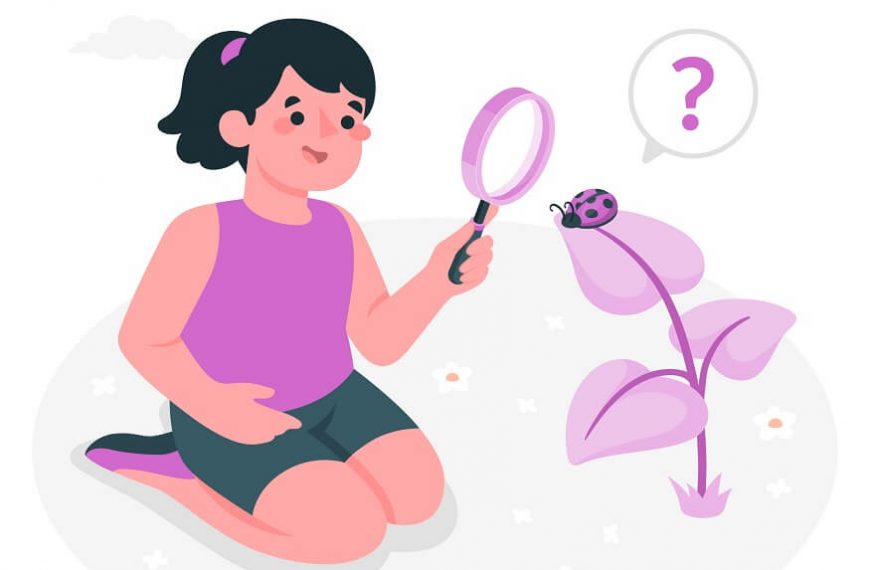Fostering Curiosity in Preschoolers
Preschoolers are naturally inquisitive and are boundlessly curious about the world around them. As parents and caregivers, nurturing, encouraging, and fostering curiosity is essential.
Let’s explore various active measures that can help foster curiosity in your preschooler’s inquiring mind. Let’s dive in!
- Create an Environment for Exploration: Design a stimulating environment that encourages exploration. Provide open-ended toys, books, art supplies, and materials that promote hands-on exploration and imaginative play. Set up discovery areas where your child can engage with nature, science experiments, sensory play, and simple problem-solving activities.
- Ask Open-Ended Questions: Engage your preschooler in conversations that spark their curiosity. Instead of asking closed-ended questions, encourage open-ended inquiries. For example, “Is that a ball?” you can ask, “What do you think that object can be used for?” This encourages critical thinking, creativity, and the development of problem-solving skills.
- Foster a Love for Nature: Take your preschooler on nature walks, visit parks, and explore outdoor environments. Please encourage them to observe plants, insects, and animals, and ask questions about what they see. Engage in conversations about the natural world, its wonders, and the importance of caring for our environment. This instills a sense of wonder and curiosity about the world around them.
- Support Hands-On Science Experiments: Introduce simple science experiments that allow your preschooler to explore and discover. Use household items to foster creativity to demonstrate cause and effect, such as mixing baking soda and vinegar to create a fizzy reaction. Encourage your little ones to ask questions, make predictions, and observe the results. These hands-on experiences foster a love for science and a curiosity about how things work.
- Visit Museums and Exhibitions: Take your preschooler to child-friendly museums, exhibitions, and science centers. These interactive spaces offer opportunities for hands-on exploration and discovery. From interactive exhibits to age-appropriate workshops, these outings foster creativity and expose your child to various topics, encouraging curiosity and expanding their knowledge.
- Read and Discuss Books: Read books that pique your child’s curiosity. Choose various topics, including nature, animals, science, and culture. After reading, discuss the story, characters, and themes. Encourage your kid to ask questions and explore related topics further. Reading opens doors to new worlds and encourages a thirst for knowledge.
- Encourage Imaginative Play: Support your preschooler’s imaginative play by providing props, costumes, and open-ended toys. Please encourage them to create stories, invent characters, and play pretend to enhance child curiosity. This type of play allows children to explore different roles and situations, fostering their creativity and curiosity about the world.
- Support Hobbies and Interests: Pay attention to your child’s hobbies and interests and actively support their pursuit. Whether painting, dancing, playing a musical instrument, or collecting objects, encourage their exploration and provide resources for further learning. Help them find books, classes, or mentors that can fuel their curiosity and passion.
- Embrace Mistakes and Learning Opportunities: Encourage a growth mindset in your preschooler by embracing and turning mistakes into learning opportunities. Teach them that making mistakes is a natural part of learning and that asking questions and seeking solutions is okay. This helps foster resilience, problem-solving skills, and a willingness to explore new ideas.
- Be a Curiosity Role Model: As a parent or caregiver, be a role model for curiosity. Show genuine interest in the world around you, ask questions, and engage in your explorations. Demonstrate curiosity through reading, learning, and engaging in new experiences. By modeling curiosity, you inspire your preschooler to follow suit and develop a lifelong love for learning and exploration.
Encouraging a sense of curiosity in preschoolers is a gift that will stay with them throughout their lives. By actively nurturing their curious minds, we empower them to ask questions, seek knowledge, and enthusiastically explore the world. Through a stimulating environment, open-ended conversations, hands-on experiences, and support for their interests, we can fuel their curiosity and set them on a path of lifelong learning. Embrace their sense of wonder and enjoy the journey of discovery together!
Dealing with a child’s curiosity requires a patient and supportive approach. Here are some tips to help you navigate and encourage your child’s interest:
- Embrace their questions: Encourage your child to ask questions and provide a safe space to express curiosity. Welcome their inquiries with open arms, even if you don’t have all the answers. Tell them that asking questions is a natural part of learning and exploration.
- Listen actively: When your child asks a question, give them your full attention. Listen carefully to what they’re asking and show genuine interest in their curiosity. This helps them feel valued and encourages further exploration.
- Provide age-appropriate answers: Tailor your responses to your child’s age and understanding. Use simple language and concrete examples that they can relate to. If the topic is complex, break it down into smaller, more digestible pieces of information.
- Encourage critical thinking: Instead of always providing direct answers, guide your child to think critically and find solutions independently. Ask them what they think or how they would approach the situation. This helps develop problem-solving skills and fosters independent thinking.
- Explore together: When your child expresses curiosity about a specific topic, take the opportunity to explore it together. Look up books, videos, or online resources that provide more information. Visit libraries and museums, or take field trips to places that can enhance their understanding and satisfy their curiosity.
- Support hands-on experiences: Encourage your child to engage in hands-on experiences that align with their interests. Whether conducting simple science experiments, engaging in arts and crafts, or exploring nature, hands-on activities allow them to explore and learn tangibly.
- Encourage curiosity in everyday situations: Curiosity should not be limited to specific topics or activities. Please encourage your child to be curious about their surroundings and everyday experiences. Encourage them to observe, ask questions, and make connections in their day-to-day life.
- Be patient and nurturing: Fostering curiosity can lead to many questions, some of which may seem repetitive or challenging. Stay patient and offer reassurance that their curiosity is valued. Avoid dismissing their questions or making them feel discouraged from asking.
- Foster a love for learning: Create a positive learning environment at home by fostering a passion for learning. Encourage reading, provide educational resources, and engage in activities that promote intellectual growth. Show enthusiasm for knowledge and share your discoveries with your child.
- Celebrate curiosity: Recognize and celebrate your child’s interest. Praise their inquisitive nature and commend them for seeking knowledge. This positive reinforcement helps foster a lifelong love for learning and exploration.
Remember, curiosity is a natural part of a child’s development and an essential tool for learning. By embracing and supporting their curiosity, you’re helping them develop critical thinking skills, a thirst for knowledge, and a lifelong love for learning.
At Eurokids, we give a safe space to foster curiosity. We ensure that the child gets answers to their questions. We create an environment that fosters creativity. Click here to learn more, or visit a Eurokids center for preschool admission.















